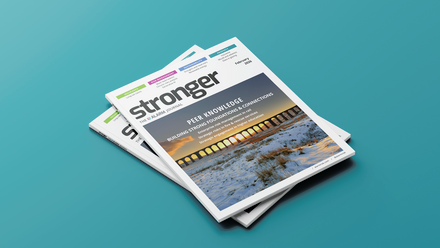The high-profile transition to green energy has prompted more activity in the solar energy sector. Councils are building solar farms and solar panels are being fitted on the roofs of many publicly owned buildings. More green initiatives will emerge as public service organisations strive to meet carbon zero targets and milestones.
Solar farms and solar panels are important solutions as organisations transition to renewable energy sources, but they come with risks, particularly fire.
Risk managers may be unfamiliar with the technology and the operational risks, so they need to understand, identify, and manage new risks.
It’s important to remember that fitting solar panels to buildings changes the risk profile - a material fact that should be declared to your insurer.
At Zurich we are seeing an increasing number of incidents of fire claims emanating from solar panels installed on buildings, including a major fire at a council. We are currently working with our experts to better understand the trend, with the main causes appearing to be electrical faults.
In many cases, once ignited the fire is exacerbated by combustible materials in or on the building, increasing the magnitude of the loss.
We are also learning that where panels are fitted flat on a roof, they can prevent extinguishment water getting to a fire, and where fitted at an angle, wind tunnels can aid the spread of fire.
Risk managers play a crucial role by understanding the insurance implications of all solar panels. That includes those that are part of an energy farm, as well as panels fitted to one or more of an organisation’s buildings.
Make yourselves aware of any renewable energy initiatives in your organisation, and develop and implement guidelines to manage solar panel fire risk. As ever, the design phase offers the best opportunities to mitigate the risk, so the earlier risk professionals become involved, the better.
Assess installation and maintenance regimes, and the skills and capabilities of those working on the panels. Your insurer can offer support via their risk teams.
Another risk to consider with solar farms, is that of business interruption. This risk may be significant if the farm is intended as a revenue stream or provides energy locally.
Questions to ask in your organisation:
- Is the organisation intending to use solar energy, either by building a solar farm or fitting solar panels to buildings?
- If yes, can you become involved in the planning stage to ensure the risk elements are looked at holistically?
- Does the proposed installation change the risk profile of the building or site?
- Are there any combustible materials on or in the building or surrounding area? Could they cause an issue should there be a fire from an electrical fault?
- How might a fire spread, and can a fire be contained?
- Do you have an inspection system that regularly reviews the electrical installation?
- Are the electrical connections accessible for inspection?
- Do you have appropriately qualified and experienced employees or contractors to carry out this work?
- What information can be provided to help firefighters deal with a fire?
- What are the fire detection systems, and will they be triggered in the event of an electrical fault in a solar panel?
- Has your insurer been notified about the solar panels?
Your insurer will discuss proposals around solar energy and assist you in understanding and mitigating the risks to your installations.



